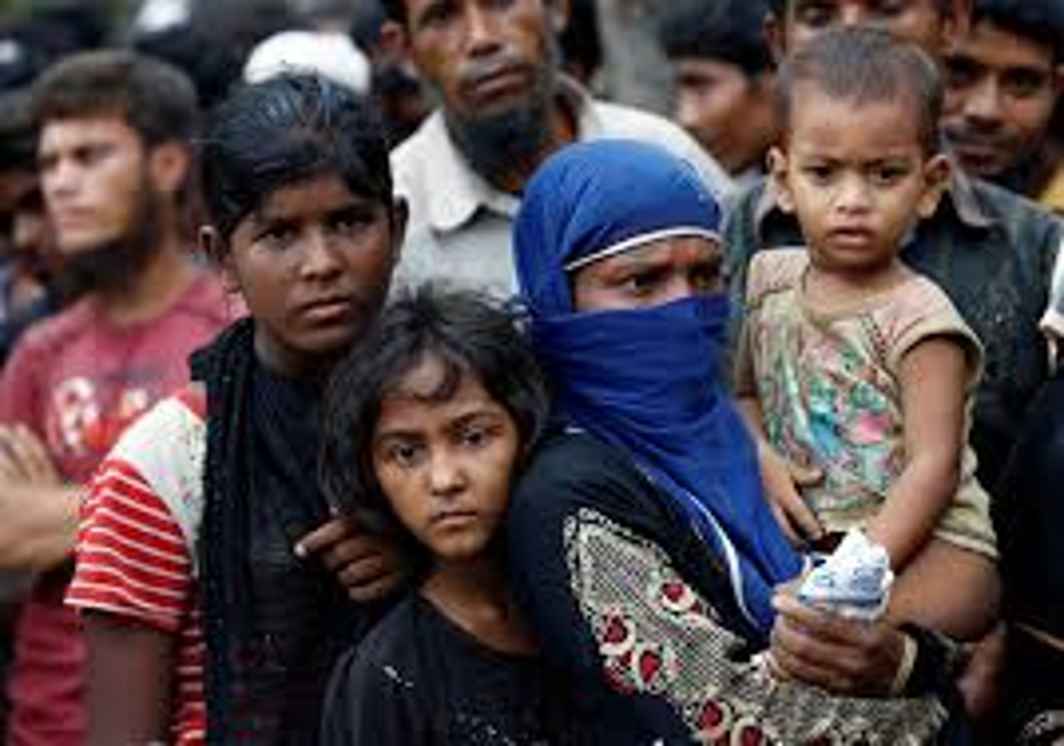Affidavit reportedly claims that intelligence inputs suggest Rohingya militant groups active in Jammu, Delhi, Hyderabad and Mewat; could be used by IS
Amid a global outrage over the continued persecution of Rohingya Muslims by the Myanmar establishment, the Union government, on Thursday, told the Supreme Court that it cannot allow the illegal immigrants from Rakhine State to stay in India as refugees as they pose a threat to national security.
The Union home ministry which filed an affidavit on the Rohingya issue in the Supreme Court on Thursday, has reportedly said that refugees of Myanmar’s ethnic minority group who are settled in scattered camps across India could be used by domestic and foreign terror groups to foment trouble in the country.
The affidavit, it is learnt, claims that inputs received from various Indian intelligence agencies suggest that at least some Rohingya groups living in India have links with terror groups. The Centre claimed Rohingya militant groups are active in Jammu, Delhi, Hyderabad and Mewat (in Haryana), and could be used by the Islamic State.
However, no evidence of this claim has been provided in the home ministry’s affidavit, which adds “National interest warrants their (Rohingyas) deportation. No illegal immigrant has the right to stay in India.”
The affidavit has been submitted before the Bench of Chief Justice Dipak Misra and Justices AM Khanwilkar and DY Chandrachud, which is presiding over proceedings on a bunch of public interest litigations and intervener petitions that have either sought deportation of the Rohingya Muslims or for directions to the Union government to provide a safe haven to these refugees.
The affidavit comes at a time when Prime Minister Narendra Modi’s government has been at the receiving end of criticism from various human rights groups and also the United Nations for not recognizing the persecution of Rohingyas as a humanitarian issue and instead indicating its willingness to deport them to Myanmar where thousands from the ethnic minority have been killed by the Junta over the past few weeks. India and Myanmar do not recognize the term Rohingya and the issues of the world’s most persecuted ethnic minority are referred to by both nations as ‘developments in the Rakhine state’ or matters of illegal immigrants.
Earlier this week, the United Nations’ top human rights official Zeid Ra’ad al-Hussein had criticised India for wanting to deport Rohingya refugees. “I deplore current measures in India to deport Rohingyas at a time of such violence against them in their country (Myanmar),” Zeid said. Zeid had also implored India to bear in mind its obligations under international law and said: “India cannot carry out collective expulsions, or return people to a place where they risk torture or other serious violations.”
But the Indian government, as suggested by the affidavit placed before the Supreme Court, maintains that it sees Rohingyas as a threat to the country’s national security.
Next week, the Supreme Court is scheduled to hear a plea filed by two Rohingya immigrants, Mohammad Salimullah and Mohammad Shaqir, challenging the Indian government’s decision to deport illegal Rohingya Muslim immigrants back to Myanmar. The plea, filed by advocate Prashant Bhushan on behalf of the two, claims that Salimullah and Shaqir had taken refuge in India after escaping from Myanmar due to widespread discrimination, violence and bloodshed against the community there.
Opposing the plea, former RSS ideologue KN Govindacharaya has also moved the apex court seeking to make him a party in the case filed by the two Rohingya Muslims. Govindacharya has opposed their plea saying they were “a burden” on the country’s resources and posed a serious threat to national security.
Meanwhile, India has extended humanitarian assistance for Rohingya refugees in Bangladesh through its ‘Operation Insaniyat’ by sending food and other essential items to the neighbour to help it deal with the huge influx of Rohingyas who have fled from Myanmar in recent weeks.


 Latest world news23 hours ago
Latest world news23 hours ago
 Latest world news23 hours ago
Latest world news23 hours ago
 Latest world news23 hours ago
Latest world news23 hours ago
 India News23 hours ago
India News23 hours ago
 India News14 hours ago
India News14 hours ago
 Latest world news14 hours ago
Latest world news14 hours ago






